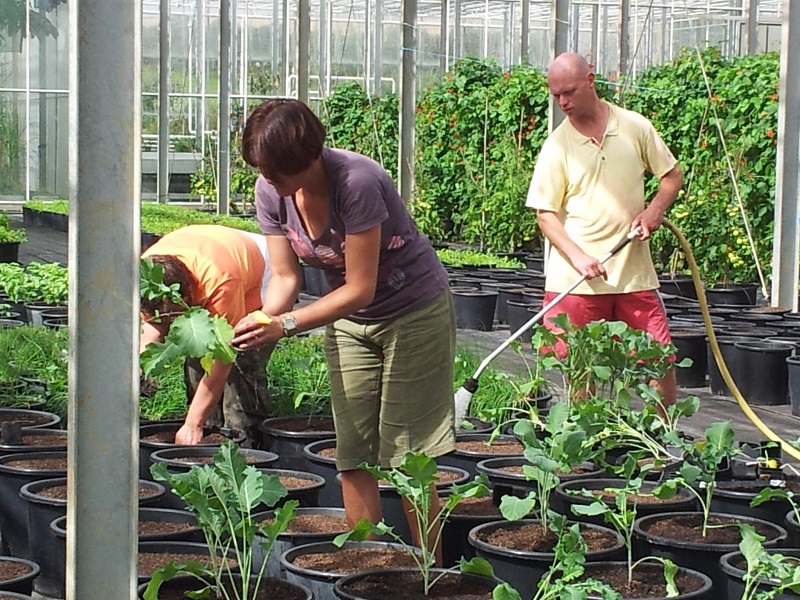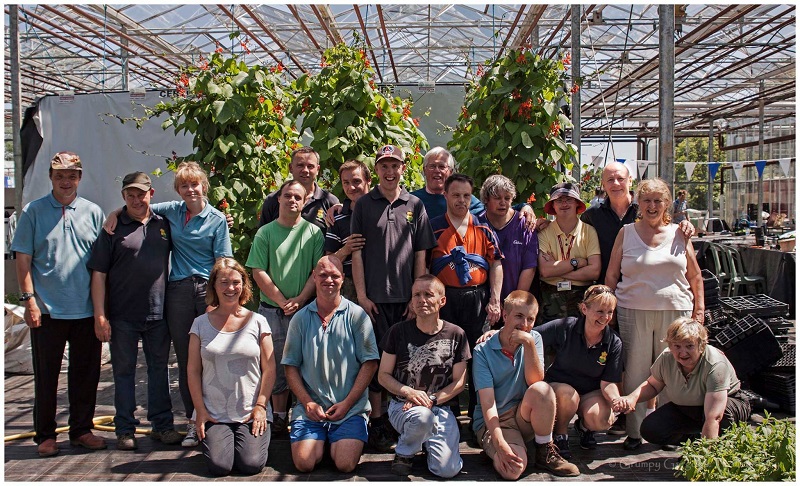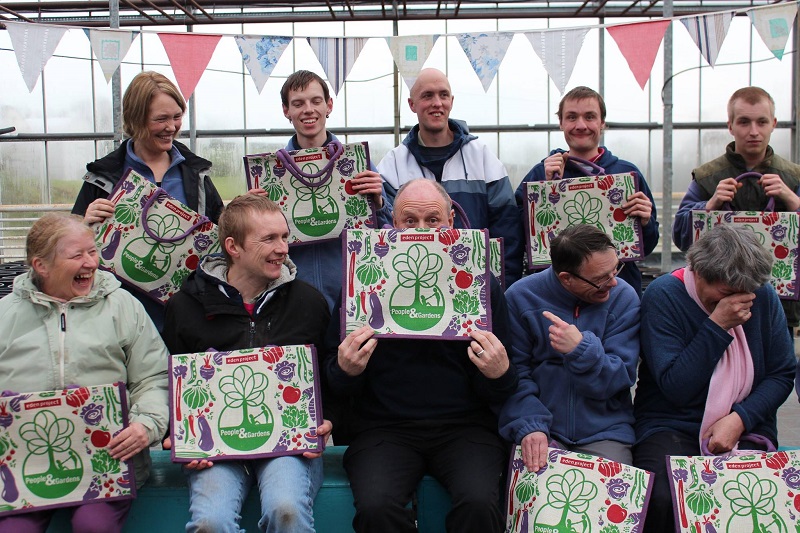
Featured image: Darren Ema and Nicky planting some purple sprouting broccoli in the greenhouse
We caught up with Ken over at People and Gardens to find out more about their work and some of the projects they are involved with, how gardening can provide substantial health benefits, and who they work with within the community for their projects and wider aims. Take a look at our interview below.
Our interview with People and Gardens
1. People and Gardens was set up to help people with learning disabilities and mental health issues to develop work and social skills. How does your work benefit them?
The work enables them to achieve participation, presence, competence, choice and respect, which leads to the participants taking control over their own lives, and to feeling that they are valued members of society.

- People and Gardens team with Countryfile and John Craven
2. Many people think of gardening as just an activity, but there are substantial health benefits to be gained as well. Can you talk about some of the health benefits of gardening?
Health benefits can be enormous. Outdoor work, fresh air, working with nature and the soil, can be emotionally and physically beneficial. Growing of food can lead to an understanding of eating healthy food and lifestyles. Gardening is subjective, and consequently, it can be done in a way which suits the individual.
3. You work with the Eden Project in a variety of ways each year. Could you tell us a little bit about the work you do with them?
Our relationship with Eden goes back 20 years and it is successful because we share the same philosophies of "changing society for the better and to use education and inclusion to make the world a better place".
We work closely with Eden's 'Green Team' to develop a social enterprise which is self-sustaining, work hard to maintain a balance between enterprise and care.
We promote each other's values, and this is evident in our work with "The Big Lunch Extra's", whereby people from communities all over the UK visit Eden and People and Gardens to learn about the community.
4. How does your work with the Eden Project help the local communities as well as the people you work with?
Our work 'role models' to those in the local community enterprise and the belief that we all have a social responsibility to look after each other.

- People and Gardens supporting the Eden project
5. Another of your projects is Veg Bags, where you provide fortnightly delivery in the St Austell area of fresh produce. What produce do you grow for these bags, and are you looking to expand your delivery radius in the future?
For our veg bags, we grow lettuces, spring onions, cucumbers, tomatoes, micro leaf crops, peas, broad beans, beetroot, turnips, carrots, aubergines, artichokes, chillies, peppers, Jerusalem artichokes, mushrooms, garlic, strawberries, raspberries, red currants, spinach, chard, pumpkins, squashes, gourds, leeks, cabbages, and kale. We do not intend to expand the scheme further at present.
6. What are the main aims of your Veg Bag project, and how successful has the project been so far?
The aims of the veg bag are to increase growing opportunities and to enable the participants on the scheme to develop their social and work skills. It is also to raise money to increase self-sustainability and to provide paid jobs for those that are often denied the opportunity. At present we have 8 employees, 4 of whom have a learning disability.
40% of the £260,000 annual project costs come from statutory funding, as an accredited care provider. The remainder comes from veg sales, either by the veg bag scheme, or the local outlets plus fundraising and grants.
7. The projects you run see you working with a variety of people for different reasons but all with the same goal in mind. How beneficial do you think gardening projects are to the local communities?
Horticulture is an ideal medium to promote 'physical and emotional wellbeing'. Participation increases a feeling of self-worth, confidence, and enables people to work together with shared values and aims, and promotes community togetherness.
All images in this post have been supplied by the People and Gardens Facebook Page




